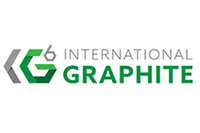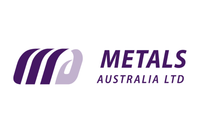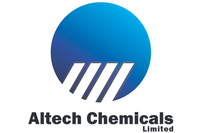Queen's University and Eagle Graphite Announce Grant to Test Multi-Layered Graphene in Plastic Composites
Queens University and Eagle Graphite (TSXV:EGA)(FRANKFURT:NJGP)(OTC:APMFF) (“Eagle Graphite”, “Eagle”, or the “Company”) are pleased to announce that the NSERC Engage committee has granted an award for research and development into the use of multi-layer graphene (“MLG”) as a reinforcement for plastic composites. NSERC, the Natural Sciences and Engineering Research Council of Canada, is a federal …
Queens University and Eagle Graphite (TSXV:EGA)(FRANKFURT:NJGP)(OTC:APMFF) (“Eagle Graphite”, “Eagle”, or the “Company”) are pleased to announce that the NSERC Engage committee has granted an award for research and development into the use of multi-layer graphene (“MLG”) as a reinforcement for plastic composites.
NSERC, the Natural Sciences and Engineering Research Council of Canada, is a federal government agency that selectively invests in research at the frontier of knowledge.
The six-month project builds on the successful production of MLG from Eagle’s graphite by Queen’s researchers, the results of which were discussed in previous releases. The new round of research will be led by Dr. Marianna Kontopoulou, PhD, P.Eng., Professor and Associate Head of Chemical Engineering at Queen’s University in Kingston, Ontario. The primary objective is to study the potential for using multi-layered graphene, derived from graphite from Eagle’s production facility in British Columbia, in plastic composites. George Hawley of Supermin Enterprises will provide additional guidance and support as a consultant to the project.
Dr. Kontopoulou explains the rationale for the research: “Polymer matrices are inherently light-weight and resistant to corrosion and are therefore attractive in automotive, structural and other engineering applications. However, they suffer from low stiffness, and can therefore benefit from modulus, and dimensional stability improvements that can be accomplished by using reinforcing fillers. Treated graphene nanoplatelets can impart superior flexural strength, thermal and electrical conductivity, and they are considered a very attractive alternative to conventional filler reinforcement.”
George Hawley adds that the research could have significant consequences for the transport industries. “The automotive and aerospace sectors have a tremendous need for lighter, stiffer and stronger materials.”
“Automobile manufacturers are faced with increasingly stringent fuel economy standards. For example, by 2025 the US CAFE standards will require every automaker to achieve a fleet average fuel economy of 54.5 mpg, and the industry has a long way to go to meet this standard. Falling short of the target can result in heavy fines; across the industry $500 million has already been paid in fines since 1988, and the National Highway Traffic Safety Administration (NHTSA) is proposing even steeper fines than exist today.”
“One key way to improve gas mileage is to reduce the vehicle weight, by replacing metal with plastics, and reducing the thickness of those plastics. But thinner plastics must have improved mechanical properties. This is done by adding extra-strong and extra-stiff reinforcements such as multilayer graphene.”
“Another approach is to increase the number of electric vehicles in an automakers fleet. These vehicles also benefit from lighter weight to improve the range of the battery. Again, this can be achieved using plastics made thinner by incorporation of high performance reinforcements like multilayer graphene.”
“Similar lightweighting considerations apply to aerospace. Manufacturers like Boeing and Airbus are reducing weight by switching from metal to plastics. The benefits are more passengers per plane and lower fuel cost. A 787-8 is calculated to save the operator $130 million in fuel cost savings over the life of the plane, compared to the 767. Thinner, lighter plastics should provide even greater savings.”
Jamie Deith, CEO of Eagle Graphite says “We are as enthusiastic as ever about our collaboration with Queens. This work has enormous potential commercial benefits for us; materials for autos and aerospace are a huge market. But it is also personally satisfying to consider that along the way we might help the world use less energy.”
About Queen’s University
Queen’s is one of Canada’s oldest degree-granting institutions and a full-spectrum, research-intensive university that conducts leading-edge research in a variety of areas. It balances excellence in undergraduate studies with well-established and innovative graduate programs. The department of Chemical Engineering at Queen’s is an award-winning department in both research and teaching, reflecting the dedication in the Department to achieve the highest standard of academic excellence. Its mission is to provide internationally recognized leadership in education and research at the interface of science and engineering, anticipate the needs of our students and society as a whole, and contribute to responsible solutions for future generations. The Department of Chemical Engineering is nationally recognized as one of the top research departments in Canada and internationally acknowledged as a leading department in North America.
About Supermin
Supermin Enterprises is the consulting company of George C Hawley. Mr. Hawley worked in the UK as a Research & Development Chemist for Morgan Crucible company, a leading global manufacturer of synthetic graphite products. Later, as Technical & Marketing Director at Martin Marietta Corporation in Quebec, he was responsible for the development of the Suzorite Mica business. Working closely with auto manufacturers Ford, General Motors, Chrysler and Volkswagen, and with plastics producers GE, DuPont, GAF, and Hercules, he pioneered the reinforcement of plastics using high aspect ratio mica flake, and brought this to a production capacity of 30,000 tonnes per year.
Since 1980, Mr. Hawley has been a consultant providing expert guidance to the industrial minerals industry, including graphite.
Click here to connect with Eagle Graphite (TSXV:EGA,FWB:NJGN) to receive an Investor Presentation.
Source: mailchi.mp



